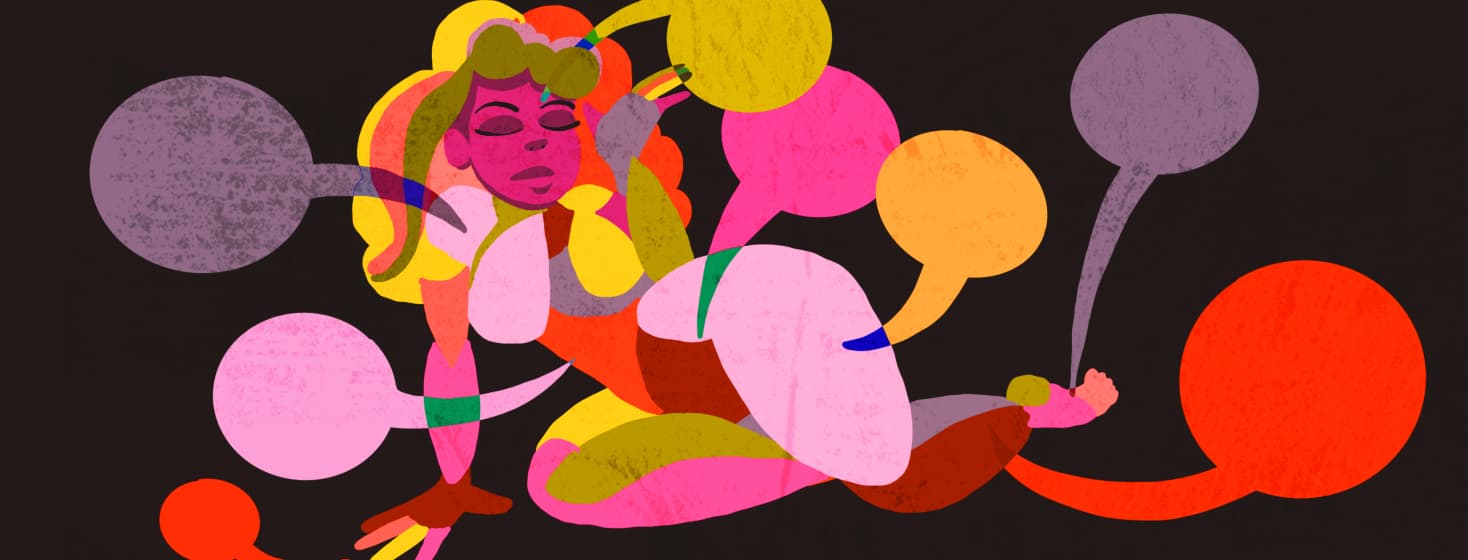How To Listen To Your Body Cues
Five years ago things started to feel not right with my body. I was tired 24/7, my mind was anxious and foggy.
I developed digestive issues, hormone issues, and the list went on. At the time, I was told by my family doctor, and through self assumptions, that these were normal for a stressed high school student.
My blood tests always came back fine for the usual markers and I started to believe that everything was okay...until it wasn’t.
As the time passed and my seemingly small symptoms grew, I started to question things. I concluded that either something was wrong with my body or I was overthinking things.
I knew everything seemed “fine” but I was growing increasingly sure that something was majorly wrong with my body. I decided to follow my gut feeling and start searching far and wide for any answer to my struggles.
Listening to my body
My search took about 2 years with a lot of blood tests, many questions asked, and a handful of doctors. We finally put the pieces together.
That’s when I went to the one doctor that could truly give me an answer: a liver specialist. After analyzing my tests he confirmed my suspicions and delivered my diagnosis of chronic hepatitis C.
I was stunned and relieved but I finally had the answer I had been searching for.
Ever since this moment, I’ve developed a deeper connection to my body and the cues it gives me. Building self-awareness with your body and knowing when to trust those gut feelings can be beneficial in so many areas of life.
From health and wellness to life decisions, being able to listen and trust in your body intuition is a beautiful skill to grow.
How to hear what your body is telling you
The first step for this is to cultivate a better relationship with your body. So many of us live a life full of distractions and hustle that keeps us always on the go.
We live in our heads, always thinking of what’s next and what’s happening, rather than being present in our bodies. That’s why the moment we take a break, get sick, or go on vacation we feel so much in our bodies.
We feel the exhaustion, the aches, and pains, the knowing that something is not right.
If we can make time to check in with ourselves, and our bodies, we’ll be able to feel those body cues much better. We’ll be able to identify issues and work on them before they can grow into something much more difficult to handle.
As an example, it’s the difference between working on mild back discomfort now versus not listening and one year later it’s suddenly a daily struggle to live with the back pain.
Steps to take to listen to your body
There are a few ways that you can do this.
Each day, take 5 minutes to sit and be with yourself. Breathe deep, relax the shoulders, and unclench your jaw.
Now feel into your body and what it’s trying to tell you. Maybe it feels like exhaustion, achy, tight, dizzy, weak, etc.
Once you identify the physical feelings in your body, you can start to figure out why.
Another practice is to make a daily journal of how the body feels. I did this and realized that every single day I was making a note of how tired and achy my body felt.
I’d write often about how stiff and swollen my joints felt. I was always complaining about my digestive issues.
This was not only helpful to me in identifying what was wrong but also with my medical care. The journal entries helped me tune into my body and provide a timeline of how long and how often my symptoms were.
Lastly, talk about it.
It might seem nerve-wracking to open up but when I started to share about my body struggles, I felt validated that something was wrong.
No one my age was experiencing these symptoms, or at least not at the degree I was. This helped me realize yet again that something was not right and to listen to my body.
My body cues were right
If I hadn’t listened to these internal, more subtle body cues, I’d have waited possibly years until my symptoms were so intense, so outwardly noticeable, that any doctor could blatantly say “Yeah, something isn’t right here”.
But I did listen and I did get my diagnosis before things got really bad. It made treatment and healing much easier and also saved me from the heartache of living without answers.
I was able to heal and find peace.
Find time to tune in, get present with your body, and truly listen. If something doesn’t feel right, listen, ask questions, and follow those body cues to the answers you need.

Join the conversation